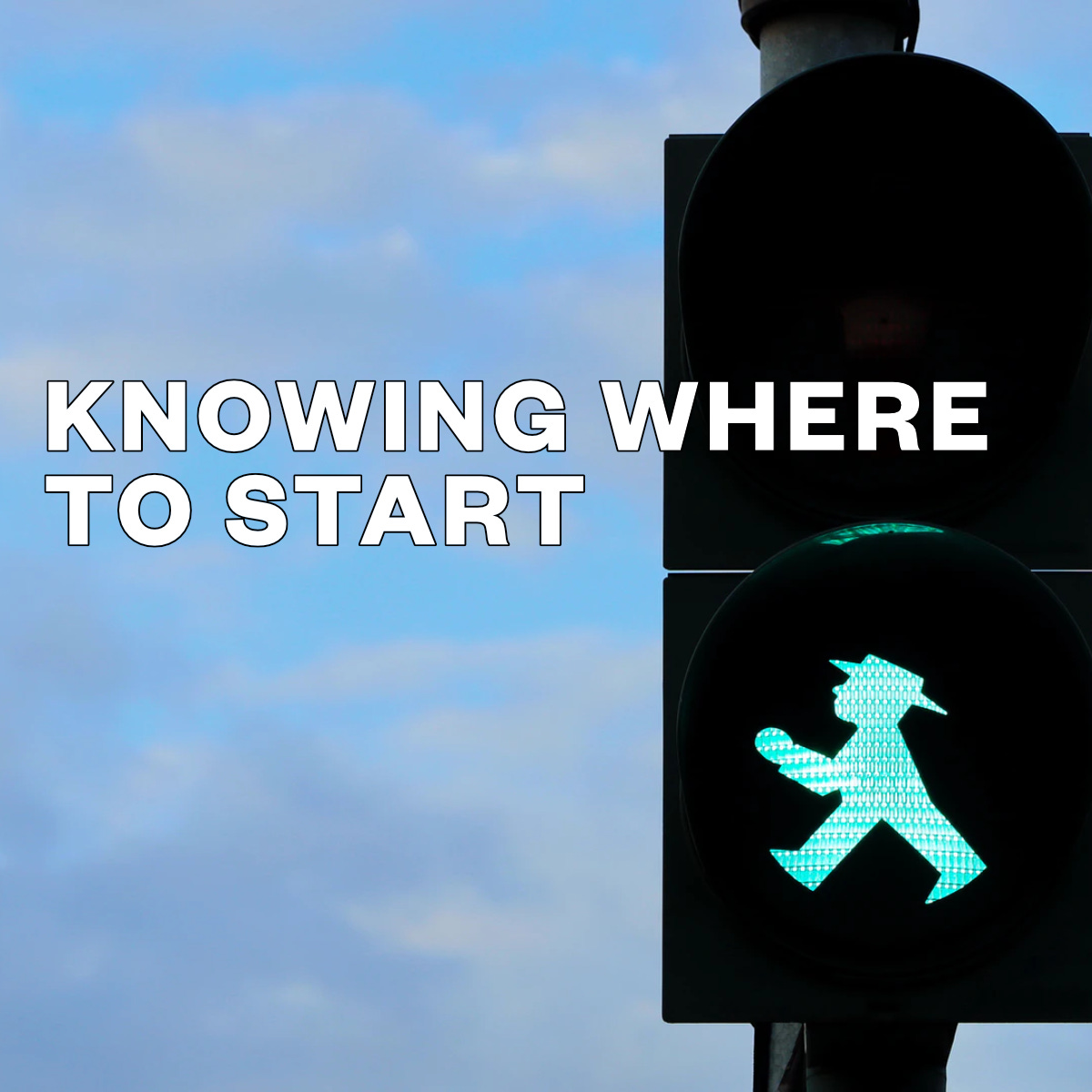Knowing Where to Start
A very common first question when meeting founders is “where do I begin”. Here’s how.
The idea of knowing when to start is complicated. Often, this links with the idea of never being ready but there’s something a little bit more practical with knowing where to start.
I remember hearing about the idea of the Doorstep Mile from Alastair Humphreys at Do Lectures back in 2018. The doorstep mile is a Scandinavian idea that describes how hard it is to start a journey. It describes the great lengths of distance it feels like it takes to make small steps of progress out of your cosy place to this new uncomfortable future in the early stages.
Making the first step, crossing your doorstep, can start the momentum and make a big adventure feel more realistic - but it is totally human to fear taking that first step.
There are a couple of ways you can get started without it feeling like a massive undertaking.
Start with small steps
What’s the simplest way to make progress? It could be doing more research, either spending an hour a night Googling your sector, competitors, or potential suppliers, it could be going out and sampling your competitors’ wares, or looking at customer service from companies you admire - or feel less positively about!
This can lead to a process that might get you started on your first business plan, or it might give you a better idea of what the questions are that you need answers to which gives you your first couple of experiments.
If you start with small, non-committal steps, you can get an idea of whether this is something you enjoy putting time into and how much potential there is in this space.
Create milestones
Map out some milestones for where you hope to be in six months, a year’s time etc.. Then, create some smaller milestones along the way that you would need to hit in order for that vision to be true.
For example, if you want to open a shop then the day that you open the doors is a good milestone. In order to hit that milestone, there are some obvious milestones you need to hit along the way - such as signing a lease on a space, visiting spaces, designing the fit-out, sourcing your products, delivering your marketing campaign.
By setting a far-off milestone that feels impossible, you can quite quickly imagine what the smaller milestones are to reach them.
You can’t open a shop without viewing your first space.
You can’t hit £1m in sales before you hit £1.
Trick yourself into starting
There are lots of ways you can trick yourself into starting. One small way is just start introducing yourself to people at events using your new identity. The more you hear yourself telling people with a straight face that you are the founder of this new company, or that you are a freelancer, the more you believe it yourself and it becomes reenforced as your true identity.
You can set up a domain and email account easily and cheaply, which again starts to build this new identity. Change your LinkedIn and Instagram bios, and order some cheap business cards.
I remember hearing the story of a restaurant chain which started with its founder pretending that he wasn’t really starting a business, but only seeing what happens if he took each next step. This tricked him into building a chain of our 50 restaurants - but not all in one step.
Creating feedback loops
Find out how you might learn from experiments and feedback loops. I’ll write more about experiments and RCTs in the next couple of weeks, but think about what a controlled experiment might be for your business or idea which gives you conclusive information and insights into what you should do next.
—
What are the small steps you’ve taken when getting started? What’s your next small step? I’d love to hear your examples!



